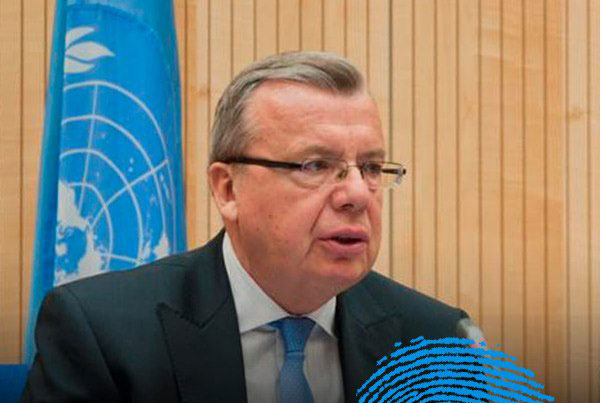Remarks of the Director-General of the United Nations Office at Vienna Yury Fedotov
COPUOS 2017 Panel on the 50th anniversary of the Outer Space Treaty
7 June 2017
 VIENNA, 7 June (UN Information Service) – Sixty years ago, a metal sphere just 58 centimetres in diameter was launched into outer space, circling the Earth in 98 minutes as we looked on in surprise and wonder.
VIENNA, 7 June (UN Information Service) – Sixty years ago, a metal sphere just 58 centimetres in diameter was launched into outer space, circling the Earth in 98 minutes as we looked on in surprise and wonder.
Sputnik One was the very first artificial satellite to orbit the Earth, and its launch by the Soviet Union on 4 October 1957 heralded a new era of discovery and scientific progress.
One decade into this new Space Age, the world came together to agree the Outer Space Treaty, which entered into force in October 1967, and to this day provides the basic framework governing the exploration and use of outer space. Welcome to the Vienna International Centre. It is a pleasure to address this panel commemorating 60 years of technical progress in outer space, and 50 years of cooperation under the Outer Space Treaty.
The work of the Committee on the Peaceful Uses of Outer Space (COPUOS) has helped to expand scientific and technical borders, shape the legal framework for outer space activities, and establish mechanisms for international cooperation in the peaceful uses of outer space.
Outer space affairs remains an area of important scientific and technological developments, and this panel today will address crucial policy, scientific, technical and legal matters relating to the Outer Space Treaty.
As you know, the space agenda continues to evolve, with the numbers of actors in the space arena increasing. Over the past years, enhancing the safety, security and sustainability of outer space activities have become an increasingly important priority.
This has also expanded the responsibilities of the UN Office for Outer Space Affairs (UNOOSA), which has been entrusted with the delegated authority to discharge the responsibilities of the UN Secretary-General under the five UN treaties and principles on outer space.
The work of UNOOSA has become more complex in view of its role with respect to space security and promoting transparency and confidence-building in outer space activities.
As part of the UN Secretariat, UNOOSA is also playing its part to support global efforts towards sustainable development and prosperity through harnessing the benefits of outer space.
Member States will have a critical opportunity to address these evolving challenges and complexities of global space cooperation at the forthcoming UNISPACE+50 conference next year here at the VIC.
UNISPACE+50 comes at a decisive moment as the international community seeks to promote progress and achieve the Sustainable Development Goals by the 2030 target date.Allow me to conclude by wishing you every success with this 60th session of the Committee on the Peaceful Uses of Outer Space.
The Committee is a unique global platform for fostering national, regional, interregional and international cooperation and coordination in outer space activities, and the Outer Space Treaty remains at the very centre of efforts to promote global governance of this important frontier of human endeavour.
This session can contribute to achieving the aims of UNISPACE+50 to build, in partnership with the broader space sector, a comprehensive Space2030 agenda in support of the SDGs, based on the peaceful exploration and uses of outer space.
My thanks for inviting me to address this panel, and I wish you fruitful discussions.
Thank you.
